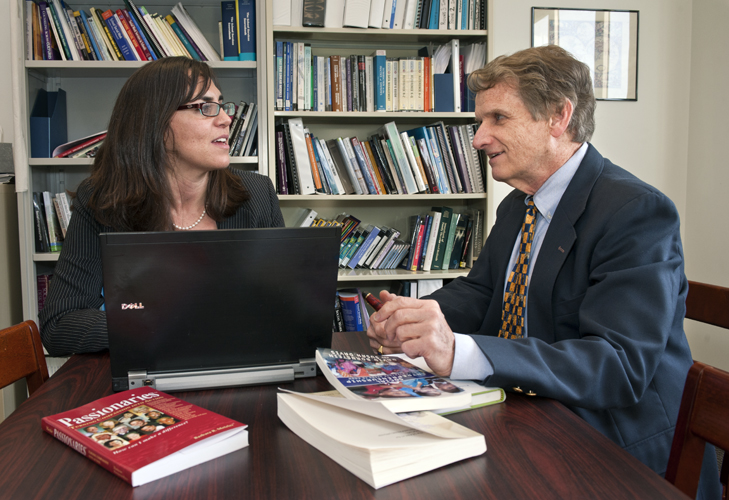
By
A collaboration between the Graduate School of Social Work and the University’s Capstone Program aims to foster interest in the growing field of social innovation, particularly for Boston College students considering social justice and social responsibility as focal points of their post-college lives.
The GSSW-Capstone partnership, known as the Social Innovation Symposium (SIS), formally began with a forum last night in the Heights Room of Corcoran Commons featuring three entrepreneurs working to bring social innovation to the non-profit, for-profit and public sectors.
SIS organizers say the collaboration, besides offering students a means to reflect on a volunteer-to-career transition in social justice, also has the potential to inspire more cross-disciplinary initiatives among BC schools, departments and faculty.
The SIS, supported by funding from the Institute for the Liberal Arts, represents a confluence of academic, professional and formational interests reflective of BC’s Jesuit, Catholic mission. GSSW Assistant Professor Stephanie Berzin and Associate Professor Marcie Pitt-Catsouphes are founders of the school’s Social Innovation Program and Collaborative, which promotes social innovation as a new model in which to train social workers at a time of decreased public funding and resources. Their SIS co-organizer Associate Professor of Theology Fr. James Weiss directs the Capstone Program, which offers seminars in vocational discernment to seniors and second-semester juniors.
“One of the challenges we face is, how do students carry with them the values and experiences they have gathered at BC?” says Fr. Weiss. “Students are inspired with the vision of social justice and human rights, but often struggle integrating it into their career plans, because doing so seems financially risky. Is it possible to make a real difference in society and yet also make a comfortable living?
“Social innovation brings a desperately needed perspective for students during this time of transition and reflection, and we’re delighted to have it be part of Capstone.”
Says Berzin: “We have been looking for opportunities to extend our work in social innovation to the larger University community, and Capstone made sense for a couple of reasons. Capstone is designed to help students connect what they have learned while at Boston College to their future — especially in the area of social responsibility and citizenship, which are components of social innovation.”
Capstone’s 25 faculty, representing the four undergraduate schools and various disciplines, was another factor, Berzin adds. “We want students — and everyone else — to realize that social innovation is not the province of social work or social services. The hope is that faculty in Capstone might share the concepts of social innovation beyond the program, with other students and with their colleagues as well.
“In this way, social innovation can be a part of the campus conversation, not only in an academic context but perhaps that of student formation as well.”
Last night’s event in the Heights Room centered around three entrepreneurs in social innovation: Earl Phalen, CEO of Reach Out and Read, which utilizes pediatricians and hospitals to encourage reading, especially in low-income families, and founder of Summer Advantage USA, which seeks to give children summer learning experiences; Jim Laughlin, director of communications for the Life Is Good Kids Foundation, the charitable arm of a for-profit company that incorporates social responsibility into its central business philosophy; and Eric Schwarz, co-founder and CEO of Citizen Schools, which seeks to extend and improve learning time at the middle-school level.
Each of the speakers discussed his particular enterprise, then responded to questions from the audience.
To advance the collaboration’s progress, Berzin and Fr. Weiss say, during the next several weeks MSW students will help Capstone classes integrate the content of the Feb. 1 symposium into their classroom learning, and offer potential avenues for further exploration. At the end of the academic year, there will be an assessment of the SIS and its next steps.
“We hope to show that social innovation offers a way to think beyond the old model of social services,” says Fr. Weiss. “You can make a difference through your profession, or you can take a place in the community and pursue success through volunteerism and philanthropy — and there are many ways to accomplish this.”



